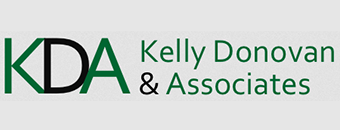Your trusted resume expert… a robot?
Artificial intelligence (AI) is truly woven into the fabrics of our lives, including job search. Most mid-sized to large employers are using technology and AI tools in the recruiting and hiring processes, and there are also tools that job seekers can take advantage of, as well.
For example, one such tool that I introduce my clients to is Job Scan, which will compare your resume to a job description you’re going to apply for. This helps you tailor your resume to that specific job posting. Even if you’re working with a recruiter on a job not publicly advertised anywhere, this can still be handy.
In a future post I can explore the nuances of how this tool works and why tailoring is preferable to using the exact same document every time without any changes.
There are also other AI and technology tools that are more questionable and less helpful, of course. (Also worth exploring in future posts!)
For now, what I want to address is how to handle a robot’s advice. While AI is an amazing advancement, it also has its limitations.
Here’s the problem: software is only as good as the people who created it, and most robots we deal with in everyday life don’t excel at everything we throw at them.
For example, if you’re having a complicated marital problem, would Siri be a good source of advice? Probably not. She can find information on the Internet for you, but don’t expect her to give the kind of advice you could get from a marriage counselor or a friend who’s been married for 35 years.
Robots are lacking when it comes to analysis that requires common sense, empathy, and emotional intelligence.
Limitations of resume software
One of my executive clients ran her resume through Job Scan to tailor it for a job posting. A recommendation popped up saying that her resume was over the recommended length; however, what she didn’t notice was that it said “unless you are applying to executive jobs.”
Not only did the software not recognize that she was an executive-level candidate based on VP titles in her resume, but the software is simplistic with determining if the length is acceptable. If you’re one word over the software’s recommended word count, the robot says it’s too long; one word under, you’re good to go! Seriously? Bear in mind that there is no universal rule among employers for resume length, so this recommended word count is an opinion.
Let me be clear: the difference of a couple words isn’t going to disqualify your application when you apply for a job.
Sure, I see resumes all the time that are too long; executives will send me three-page and four-page resumes they’ve developed on their own, and these are almost always too verbose to be effective–nobody wants to read that much in an era of short attention spans. Guidance about keeping the length reasonable is certainly needed, but deleting an important bullet point to get a resume under the “magical” number a robot recommends is just silly.
These types of guidelines from an AI tool are usually based on best practices that are applicable to the lowest common denominator of people. Your needs might be slightly different, depending on your industry, level of seniority, target employer, target job, career history, and unique career situations.
You could think of it like government dietary guidelines. They’re based on what will probably work best for most people, but your needs might be slightly different if you’re an athlete, diabetic, celiac patient, or have a food allergy. In those instances, you could work with your physician, dietician, or trainer to determine what will be best for you.
Another odd glitch I’ve seen with this software is that in some cases it may say that the formatting of dates isn’t acceptable, even though in other instances it found the exact same date formatting to be fine (and I’ve tested the same date formatting in the most popular applicant tracking systems used by employers–Workday and Taleo–and it was fine, in addition to being consistent with best practices in my industry).
Handling a robot’s advice
At this point, advice from robots needs to be taken with a grain of salt. This is one reason it makes sense to work with a professional on your resume. You can get input from a human based on their experience helping other clients land positions.
Speaking of humans, that’s actually how most people land great jobs–not by applying online for an advertised opening. I’ve written in the past about navigating networking introductions (as a relationship-based job search approach) and problems with advertised openings.
It’s usually relationships that lead to the best opportunities–particularly at an executive level–and relationships help you get beyond the herd of 100+ other applicants who will likely be applying for those advertised openings along with you. Having a referral from an employee helps you snag an interview in these competitive situations.
The bottom line: AI job search tools range from useless to helpful, but even when they’re helpful (like Job Scan), you also need to balance their advice with the opinions of human experts and your own common sense. Oh, and while you’re at it, please don’t replace your marriage counselor with Siri. 😉
This article first appeared on www.KellyDonovan.com



